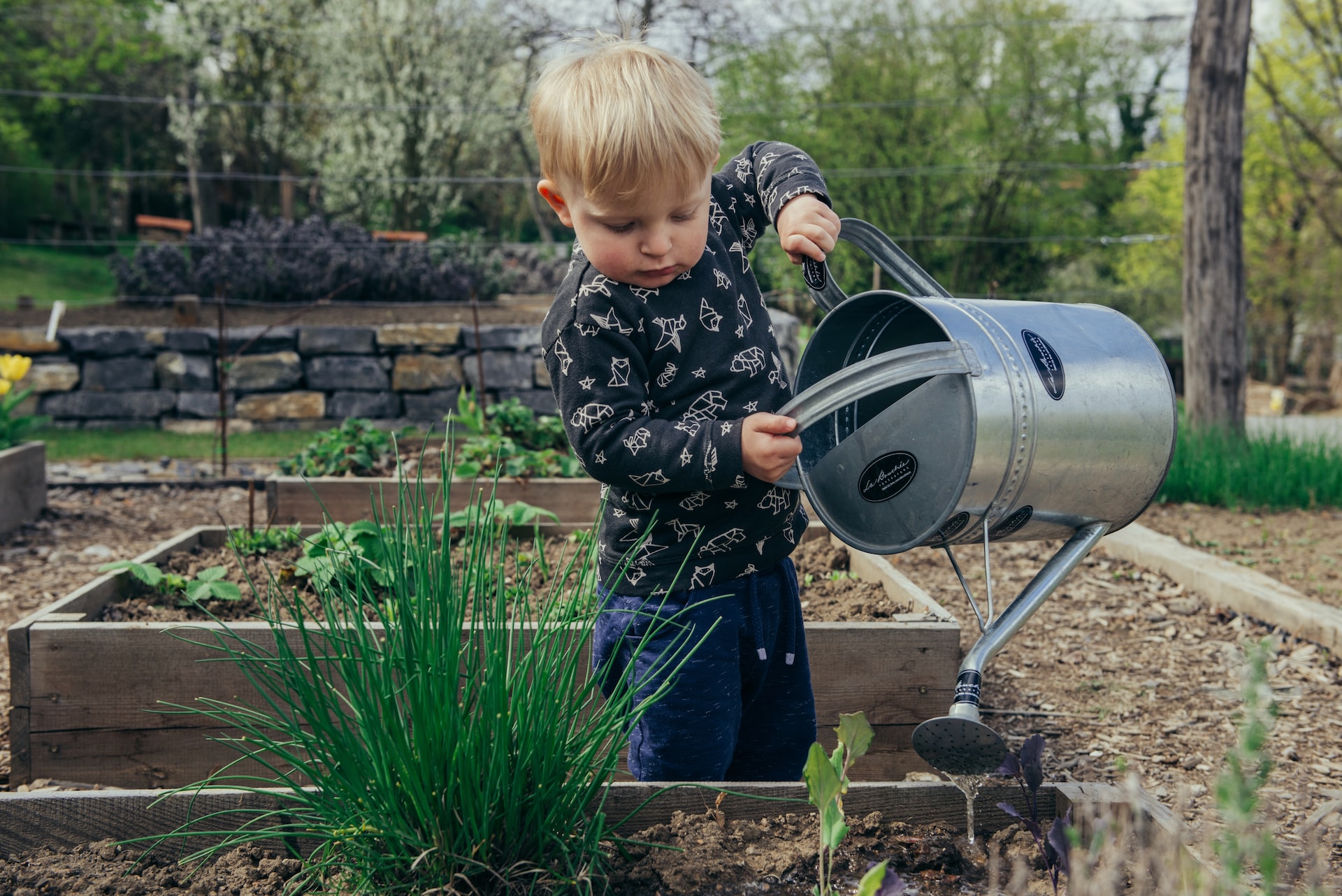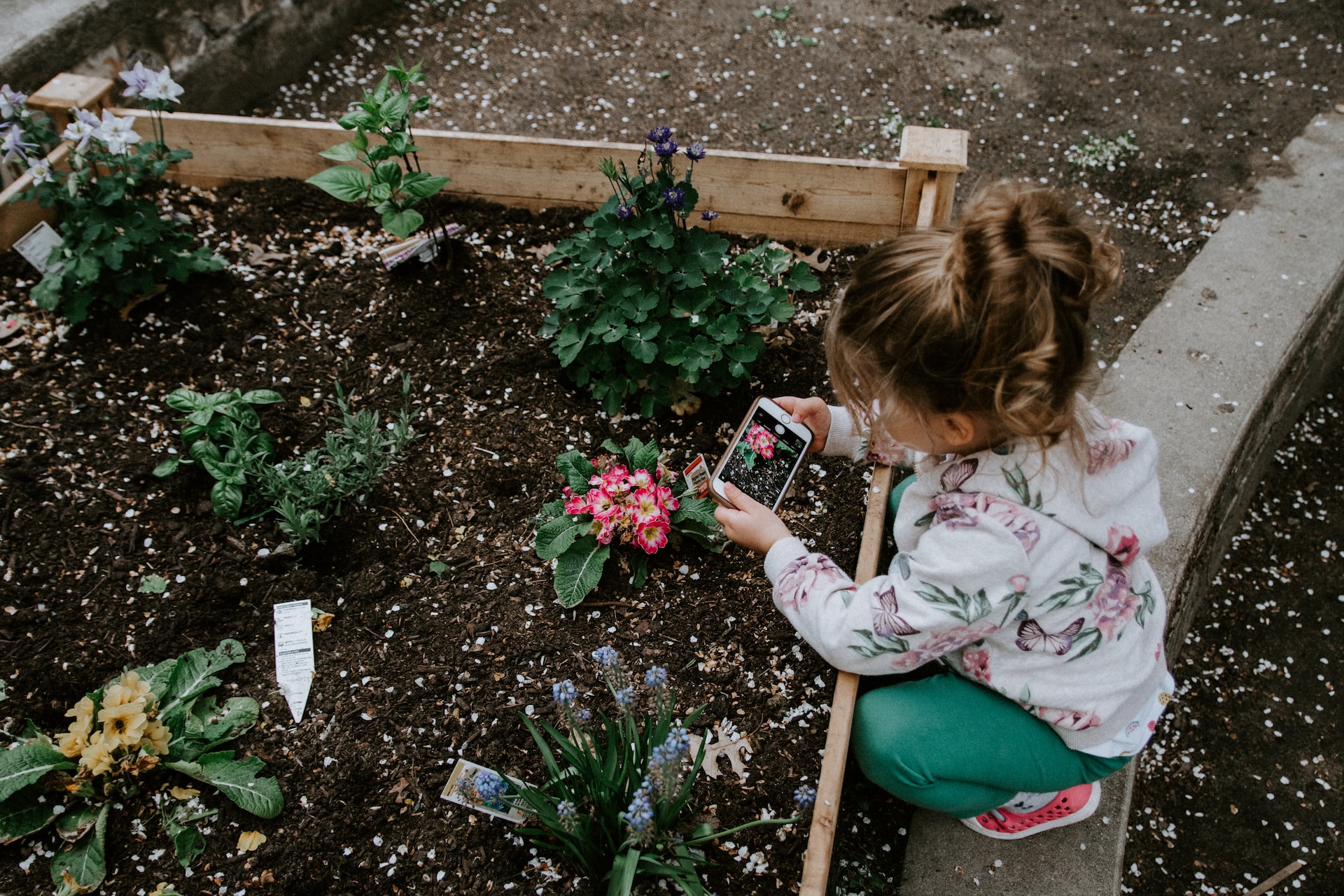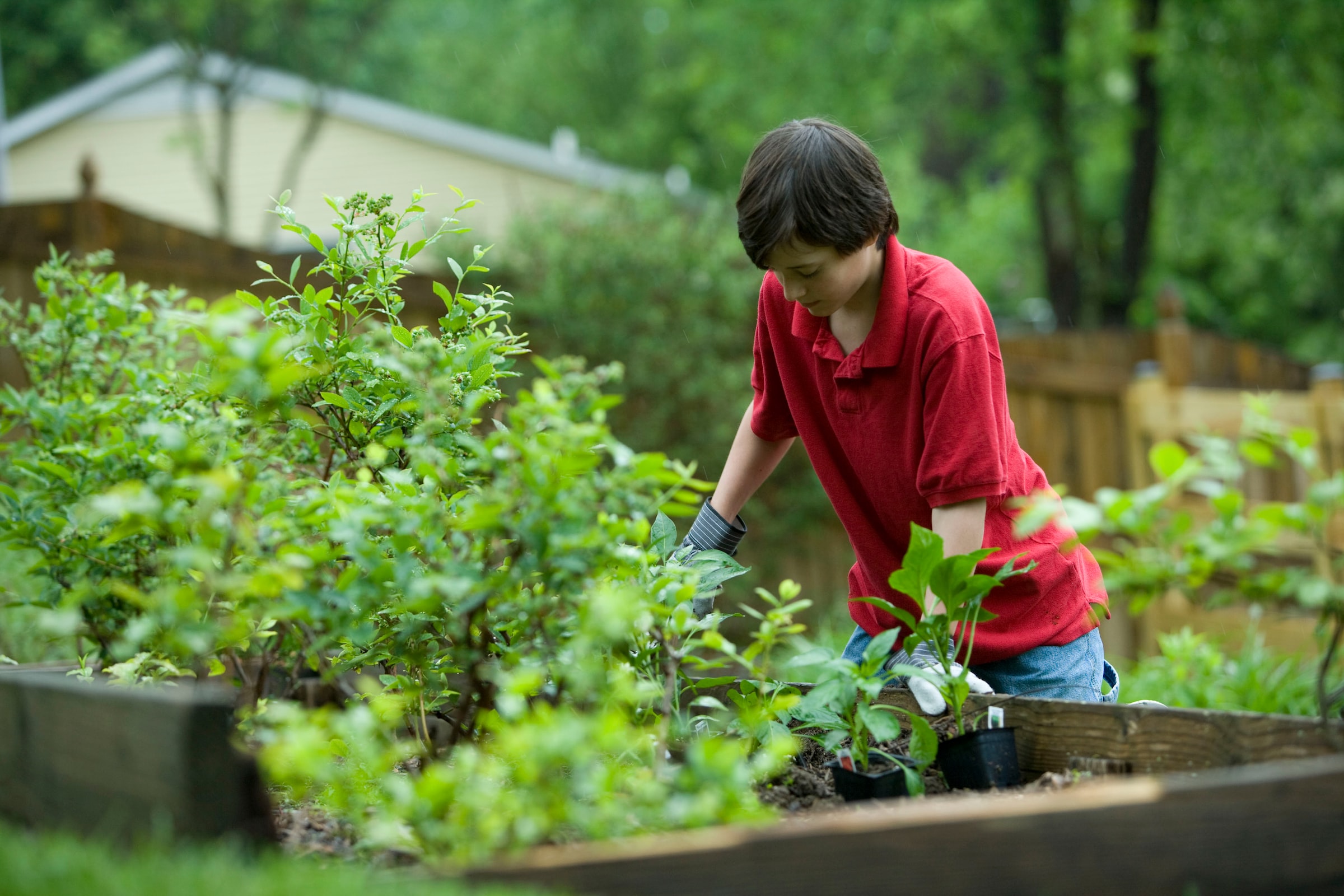by Oliver Williams
Many see gardening as a hobby for adults but there’s lots for kids to learn from getting green-fingered. Here are four ways that gardening with preschoolers and elementary school kids could help to nurture your child’s creativity and support their development.
1. Gardening can be used as sensory play
Gardening is a very tactile activity that engages the senses. Kids can feel the different textures of leaves, petals and soil, smell various scents of flowers, and foliage and see a variety of colours and shapes in planters and flowerbeds. They can also engage their taste buds if you have a vegetable patch or grow edible plants like herbs. Sensory play is essential for helping kids to build nerve connections that support brain development, and it plays an important role in encouraging problem solving, curiosity and creativity.
 Photo by Filip Urban on Unsplash
Photo by Filip Urban on Unsplash
2. Gardening supports motor skills
Motor skills are the body’s ability to process movements and gardening is a brilliant opportunity for kids to practice and improve a huge range of both gross and fine motor skills. Gross motor skills are those that use large muscle groups for tasks like balancing and walking. Fine motor skills are those that use small muscle groups for intricate tasks like tying shoelaces or using a pencil. Lots of fine motor skills are involved in gardening as children learn how to use tools and get to grips handling very small objects like seedlings. These motor skills can be transferred to many creative pursuits in future, such as painting, sculpting and drawing.
3. Gardening relieves stress and boosts mood
People who garden on a daily basis have improved wellbeing and less perceived stress than those who don’t garden at all. The repetitive movements involved in gardening, along with an immersion in nature, helps to distract us from work and personal life stresses and focus on the present moment. When we’re less stressed, we’re better able to unlock our creative side and take inspiration from the world around us. By instilling the habit of gardening in kids at a young age you can help them practice stress-relieving activities, be more present and tap into their creative side.
4. Gardening can boost self-expression and self-esteem
When you give a child their own patch of garden to take ownership of, they have an opportunity to express themselves creatively in their choice of plants and layout. As they watch their garden thrive, they’ll develop a sense of accomplishment that boosts their self-esteem and confidence. This can make them feel empowered to express themselves creatively in the future. You don’t need to have a huge garden to give kids space to call their own. A large plant pot could be enough to get them started, and it’s a great way to teach them how to take on responsibility if they’re in charge of watering, fertilising, weeding and trimming their own little patch of outdoor space.
Most children love getting their hands dirty with activities like gardening so next time you have some free time be sure to get out in the yard and let the kids explore their creative side.
About the Author:
Oliver Williams is a father of two and a keen gardener. He loves spending time outdoors with his family and getting his hands dirty in the garden. Oliver enjoys reading about nature and gardening, and he likes to experiment with new plants in his garden. He is always looking for ways to improve his gardening skills so that he can provide the best possible care for his family’s garden.
Cover Image:
Photo by Kelly Sikkema on Unsplash


